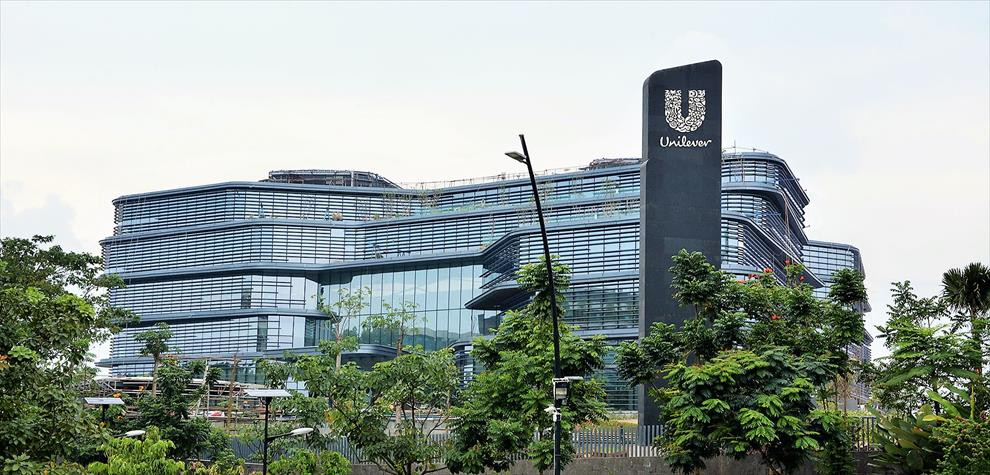Popular Reads
Top Results
Can't find what you're looking for?
View all search resultsPopular Reads
Top Results
Can't find what you're looking for?
View all search resultsUnilever Indonesia books 6.5% profit growth in Q1 as consumer goods still sell
Consumer goods giant PT Unilever Indonesia reported a 6.53 percent growth in net profit in the first quarter as domestic and foreign sales saw an upsurge amid the COVID-19 pandemic.
Change text size
Gift Premium Articles
to Anyone
C
onsumer goods giant PT Unilever Indonesia reported a 6.53 percent growth in net profit in the first quarter of 2020 as domestic and foreign sales saw an upsurge amid the COVID-19 pandemic.
The publicly listed company, which owns soap brand Lifebuoy and Lipton tea, among other brands, reaped a net profit of Rp 1.86 trillion (US$124.52 million) throughout this year’s first three months, up from the Rp 1.75 trillion it had booked in the same period last year.
Its net sales grew by 4.58 percent year-on-year (yoy) to Rp 11.15 trillion by the end of March. The accumulated growth in sales was driven by a 4.4 percent growth in domestic sales to Rp 10.63 trillion and 9 percent growth in export sales to Rp 521.69 billion.
The home and personal care (HPC) segment accounted for Rp 7.85 trillion in sales, while the remainder was sales in the food and refreshments (F&R) segment.
“Despite favorable gross margin (52.4 percent in 2020’s first quarter versus 49.8 percent in 2019’s first quarter), net margin fell short of our expectations, which we attribute to higher operating expenses,” Mirae Asset Sekuritas Indonesia analyst Mimi Halimin wrote in a research note, adding that the jump in marketing expenses had dragged down profit.
“However, we still hold a positive view on consumer companies’ performance. We believe that consumer companies will stay defensive amid the currently uncertain condition due to the COVID-19 outbreak,” she stated.
A recent consumer survey conducted by Mobile Marketing Association (MMA) and SurveySensum in Indonesia showed that people were buying more health and hygiene products as the coronavirus disease continues to spread. Around 85 percent of respondents reported doing more handwashing, while 46 percent said they took vitamin supplements.
Unilever Indonesia launched cleaning products under the brand Sahaja in March, a product line the company wants to integrate with Islamic values. Sahaja products include dishwashing soap and antiseptic liquid.
“Innovation is the company’s main key to maintaining positive growth in the first quarter of 2020,” Unilever Indonesia president director Hemant Bakshi said in a press statement on Wednesday. “We recorded 21 product launches and relaunches in various segments.”
Among the relaunched products were the highly anticipated comeback of Viennetta, an ice cream considered a premium treat for Indonesian families in the 1990s. The product was discontinued in the early 2000s but re-entered stores as a limited edition item starting April 1.
The focus on new product launches is evident in the company’s cost structure from January to March. The company spent Rp 2.35 trillion on marketing and selling in the first quarter of the year, up 16.97 percent from the corresponding period last year.
Capital expenditure (capex) of the consumer goods firm was up 1.75 percent at 189.84 billion as of March.
Stocks of Unilever, traded on the Indonesian Stock Exchange (IDX) under the code UNVR, were down 3.32 percent at 11:38 a.m. Jakarta time on Monday as the Jakarta Composite Index (JCI) was 2.35 percent below its closing price from last week. The stocks have lost almost 8 percent of their value over the past year.










